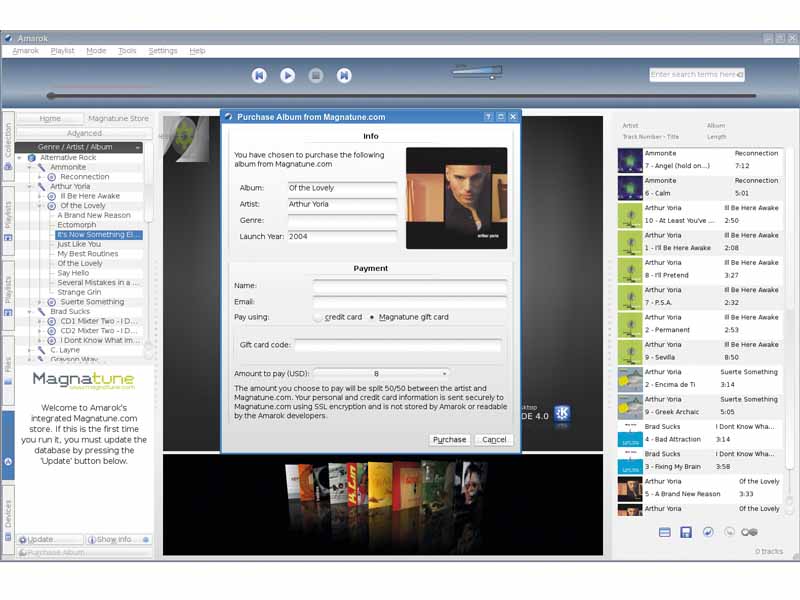Building the KDE UserBase
You don't need to be a hacker to contribute...

Most software developers, whether open source or proprietary, would agree that the success or failure of any endeavour depends on building a community.
This may be a community of fellow developers, advocates or just users, but unless a significant number of people take a project to their hearts, it's unlikely to make an impact.
If you're an elite coder who dreams in C++, making your mark on a free software project could be relatively easy; you take the code – magically available under the GPL – and work out how to do something new or more efficient with it and then bash out your edits on a keyboard. You release your patch and the community sings your praises while you begin the process over again with the same or another project.
For those of us who dream in boring old pictures, making an impression may seem like a pipe dream, but there are ways that end users can get involved in free software development and help improve not just the software itself, but also the experience of other users. In this case, it's not our (lack of) coding skills that are of use, but the diverse ways we use software and the experiences we can bring to the community.
Enter UserBase and Anne Wilson. The former is a collection of pages dedicating to helping users everywhere get the best experience when using KDE. The latter, meanwhile, is a retired teacher with a passion for Linux, learning and KDE who has become a key contributor to UserBase.
She says UserBase aspires to being the first-stop site for KDE users in search of hints and tips, userfriendly discussion pages and evolving information about applications: "There has traditionally been a great deal of information on the web about KDE applications," she says. "But its scattered nature has made it difficult for users to find, and difficult for developers to maintain."
UserBase, Anne says, is an integral part of the "great reorganisation" going on in the KDE documentation project to address these problems.
Sign up for breaking news, reviews, opinion, top tech deals, and more.
Linux Format: How are contributors organised?
Anne Wilson: Organised? What's that? Seriously, this is a wiki. We, the smallish group of original contributors, use the Recent Changes RSS feed to keep in touch, and encourage people to use the Discussion pages when an issue needs resolving. It's no more organised than a chat in the pub, but it works, and it's productive.
It was mid-September when we had our first few pages up and 'went live', inviting contributions. Recently we saw our 200th page arrive, and the statistics page tells us that there have been a total of 197,132 page views!
It's easy to set up a wiki, but difficult to acquire and keep users and contributors. How have you managed to build and retain a successful userbase?
Time will tell whether we have managed to do this. In the end it will depend on two factors – whether users find it helpful, and whether developers find it easy to use for end user documentation.
The first problem was to define clearly the focus of UserBase in terms of what belongs there, and what doesn't. KDE had a wiki previously, but the focus was never defined, and it descended into chaos. Users felt that it was not for them, and developers couldn't work out whether to put information into the wiki, into TechBase, or both, which they clearly didn't want to have to do.
Are there plans to integrate the project further into the KDE experience?
An excellent idea, but help files don't get written too often, so it will take a little time for that. Currently, though, if you search for an application and find an external project site you may well find that the Documentation page links to UserBase. This is proving the preferred route for many smaller projects. Large projects like Amarok need to keep their own pages, but that's no problem either, as UserBase simply links to project pages. The idea is to make it simple for the user to find the information they need.
The TechRadar hive mind. The Megazord. The Voltron. When our powers combine, we become 'TECHRADAR TEAM'. You'll usually see this author name when the entire team has collaborated on a project or an article, whether that's a run-down ranking of our favorite Marvel films, or a round-up of all the coolest things we've collectively seen at annual tech shows like CES and MWC. We are one.